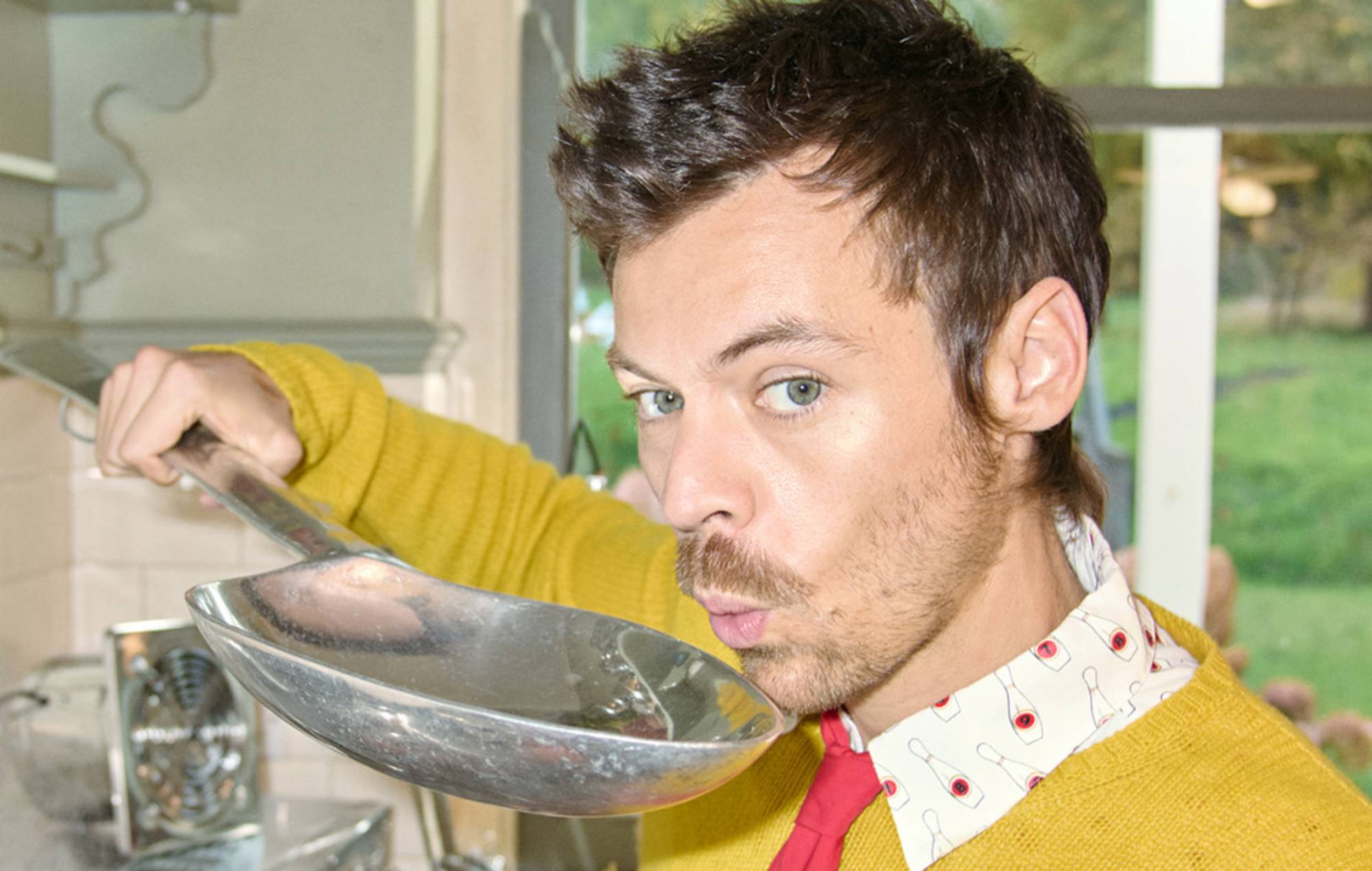By Danielle Chelosky
“I go back and forth about whether that would be the right thing to do,” singer-songwriter Julien Baker says about running away and making music in the woods. On this 10 a.m. phone call, Baker is doing what she seemingly always does — weighing the morality of a situation. “If I isolate myself from this world that I am confused and saddened by, the confusing sadness of the world doesn’t stop existing. I just get to distance myself from it.”
The 25-year-old artist has reason to contemplate it all. After playing in bands from a young age, she took off with her striking solo debut Sprained Ankle in 2015. The impressive follow-up Turn Out the Lights came two years later and only heightened her fame. In 2018, she joined forces with fellow emotive musicians Phoebe Bridgers and Lucy Dacus to form Boygenius and release vulnerable, collaborative songs. Most recently, the three of them were invited onto Hayley Williams’s debut solo record Petals for Armor on the track “Roses/Lotus/Violet/Iris.” And now it’s time for Baker to return to her natural role of standing alone, with her third solo album, Little Oblivions, out February 26 via Matador Records.
“I feel like The Grinch,” is one of the first things Baker tells me, calling me from Tennessee, “but I hate Christmas.” By asking how her holidays were, I’ve unlocked something deeply passionate and a smidge nihilistic from within her. Suddenly, she is ranting about the transactional nature of it all: “You have to assign a value, a budget, to how you’re going to creatively tell people you love them with a gift,” she says. And people often pester her for this — why can’t you just enjoy it? — and the answer is one that’s inevitable: “I overthink every single thing in the world,” she announces with a laugh.
It is not that she chooses to be this way. Cynicism is hard to break out of; Baker is aware of this, calling herself a “grump.” It can be hard being friends with a grump, but it’s even harder to live inside the brain of one. It seems like music is one of the few places where Baker can avoid complications and messiness and overthinking — and not in the words, but in the instruments.
For this record, she got a band on it to give the songs more movement. “Instead of me in my room meticulously constructing poetry over really beautifully reverb-laden guitar,” she says, “I would write a song and record it on an acoustic with super dead strings that didn’t sound particularly good, and then [producer Calvin Lauber and I] would try to find subtleties to make it interesting. We put little crushed things in — lo-fi drums and sounds that were the direct antithesis to the sort of traditional, beautiful [nature] of how I made the last record.” It feels as if Baker is letting go a bit and changing the way she expresses herself. “Hardline” begins the record with abruptive, harsh chords that quiet down to let Baker’s earnest vocals make confessions. She immediately strips herself of expectations and responsibilities: “Start asking for forgiveness in advance for all the future things I will destroy / That way I can ruin everything.”
Throughout 12 songs that play with this tension of abrasive noise against peaceful silence, Baker reckons with accountability, redemption, punishment, mercy. It captures an individual in the midst of accepting the past and figuring where to go next. It does not feel like someone trying too hard or trying to fulfill expectations; it feels like someone naturally extracting meaning from intense personal experiences.
“There’s something amoral about hearing music and hearing sounds,” she explains. “You can assign an agenda or a meaning or a value system to lyrics, but music itself — the organizations of sound — is really comforting to me. It’s a place where I can either play the notes or I can’t. I can either arrange them in this certain way or I can arrange them in some other way. There’s nothing right or wrong about that.”
She has mastered the art of using songs as a form of communication, but the hard part is then having to then explain herself in interviews. “There’s so much to extrapolate from the lyrics, it then becomes a discussion not even about the music or the music’s purpose but about my life and how my ideologies have changed. I want to make sure those are represented accurately and then those can never be because they’re gonna be told through somebody else’s words.” She is tangibly stressed about this, out of breath by the time she finishes that sentence. With a laugh, she adds: “That’s why I love talking about gear. I’m like, Yes, great, I’m so glad I don’t have to postulate about what God is right now.”
At the same time, she remembers struggling in the music industry at 17 years old, begging anyone to care about or even just notice her art. Now 25, she recognizes that there are millions of artists who are still trying to get people to care about their art, still trying to make a living off of their art. “It’s such a cruel paradox,” she says. And so this is why she sometimes considers running away to the woods.
However, she hasn’t yet. She made Little Oblivions, her junior effort that started taking form in 2019. In the past, Baker has put a lot of pressure on herself. “I was balancing guilt and trying to make these timeless songs. I stripped drums and synthesizers and everything away because I wanted it to be in the style of the Woody Guthries and Leonard Cohens of the world who somehow can set poetry to music with just three lame chords and make it universal and philosophical and true.”
Before she began making Little Oblivions, though, she asked herself, What’s the worst-case scenario? “Eventually people are gonna not care,” she realized. “Eventually I’m gonna be not even a footnote in musical history. Or human history.”
Baker found comfort in the fear of being forgotten, which allowed her to move more freely through her music. “It almost makes me cringe a little bit when I hear people talk about legacy,” she says. “You want people to think you’re nice, you want your coworkers to think you’re nice, you want your family to think you’re smart and hardworking, you want your partner to think you’re attractive. We are constantly managing people’s perceptions of us and it’s impossible.”
Unfortunately, being aware of this doesn’t make someone immune. That’s part of the appeal of going off the grid and living secluded from society. Yet there may be something selfish about saving ourselves while everyone else is burning. “I could make it a lot better for myself and I could go grow squash in the Appalachian Mountains,” Baker speculates, “or I could recognize that this is my job and I have a chance to contribute something thoughtful that might change how another individual thinks. I can really only hope for individual change. I don’t know if structural chance is possible without that.”
Every Christmas, Baker tells herself she won’t be participating — it will finally be the year she detaches herself from the tradition. “And then I end up feeling like: Do you really want to be that asshole at the family gift giving ceremony?” she says. And then she gets last-minute gifts for everyone. Little Oblivions is not a last-minute gift, nor is it given under pressure. It is just a gift from her heart, for the sake of it.







